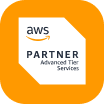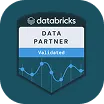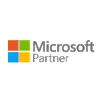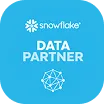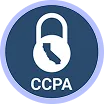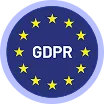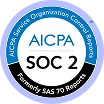Unlocking the Power of Web Scraping in the Travel Industry
Use Cases of Real-Time Web Data in Travel


In our increasingly interconnected world, data has become the new gold, powering decisions and strategies across sectors. The travel industry, characterized by its dynamic nature and highly competitive landscape, is no exception. In this context, web scraping has emerged as a pivotal tool, allowing businesses to extract actionable insights from the vast ocean of online data. This piece delves into how web scraping has revolutionized the travel sector, emphasizing its manifold applications.
Unpacking the Role of External Data in the Travel Arena
As global events, consumer preferences, and market dynamics continually shift, the travel industry needs to adapt in real-time. Through web scraping, businesses can gain a pulse on these ever-changing factors, pulling data from forums, competitor platforms, and travel sites. This external data paints a comprehensive picture of the market, empowering travel entities to stay proactive, agile, and ahead of the curve.
Use Cases of Real-Time Web Data in Travel
- Competitive Analysis for Pricing Strategy:
- Sources: Competitor websites, third-party booking platforms, and customer review sites.
Real-world Example: A renowned airline observes through web scraping that a competitor has introduced discounted fares for certain routes. By promptly adjusting its own prices and offering value-added services, the airline ensures it remains a top choice for travelers. By actively monitoring these platforms, businesses like hotels, airlines, and Online Travel Agencies (OTAs) can stay updated with the competitive landscape, ensuring that their pricing remains in line with market expectations. - Personalized Marketing for Enhanced Customer Experience:
Sources: Social media platforms, travel forums, and review sites such as TripAdvisor.
Real-world Example: A boutique hotel in Paris notices a rising trend in travelers seeking local culinary experiences. Leveraging this insight, they create packages that include curated food tours, attracting more guests. Tapping into these sources offers businesses a window into travelers' preferences, allowing them to tailor packages and promotions, thus enhancing customer satisfaction and boosting sales. - Trend Spotting for Strategic Planning:
- Sources: Travel blogs, influencer posts, and platforms like Airbnb and Booking.com.
Real-world Example: Through web scraping, a leading OTA identifies a surge in interest for eco-friendly travel experiences. They quickly integrate eco-resorts and sustainable travel packages into their offerings, meeting the emerging demand. By constantly scouring these platforms, businesses can spot emerging travel trends, helping them position their services to cater to the latest market demands. - Real-time Alerts for Deals and Promotions:
Sources: Travel deal forums, email newsletters, and flash sale websites.
Real-world Example: A travel agency keen on providing value to its subscribers uses web scraping to monitor sudden deals on popular travel deal forums. When an attractive discount for a sought-after destination pops up, they immediately notify their users, enabling them to snatch up the deal before it's gone. Staying vigilant on these platforms allows businesses to offer real-time deal alerts to their customers, fostering trust and increasing the chances of repeat business from satisfied customers. - Tracking Influencers in the Travel Industry:
Sources: Social media platforms like Instagram, YouTube, and TikTok, as well as travel vlogs and influencer collaboration announcements.
Real-world Example: A hotel chain wanting to boost its brand image identifies trending influencers in the travel niche through web scraping. After noting an influencer's recent travels and patterns, the chain invites them for a sponsored stay, resulting in exposure to a larger and more engaged audience. Regularly monitoring these channels allows businesses to align themselves with influencers that resonate with their brand's values and audience, ensuring impactful and organic promotion in the industry.
Key Challenges in External Web Data Collection for Travel
- Unstructured Data: The web is a repository of data in varied formats - from texts and reviews to images and videos. Parsing this unstructured data requires a combination of advanced tools and expertise. But with the right strategies, this challenge transforms into an opportunity, allowing businesses to derive rich insights.
- Inaccurate Geotargeting Due to Localized Data: Websites often present content tailored to a user's geographic location. For a global enterprise, obtaining a holistic view can be a challenge due to this customization. However, with modern web scraping tools, businesses can achieve precise geotargeting, ensuring access to comprehensive data.
- Reliable Access: Maintaining consistent access to diverse platforms is pivotal for real-time insights. Yet, hurdles like IP restrictions and rate limits can impede access. The silver lining? Contemporary data collection platforms come equipped with features like IP rotation, ensuring unbroken and reliable data access.
How Nimble’s Data Platform Accelerates Travel Data Gathering
Nimble’s Data Platform streamlines real-time data collection from anywhere on the public web. By using Nimble’s Web API, businesses gain instant access to fresh, structured travel data from any public source.
Nimble’s Web API is designed to intelligently parse HTML content, transforming unstructured data into a structured JSON format. This ensures that regardless of the source website's layout or design, the data extracted is consistent and ready for analysis.
Additionally, Nimble’s Web API harnesses our residential proxy solution for granular global location targeting. It supports various levels of location selection, from country to city, ensuring that data is sourced accurately based on the geolocation requirements of the task.
To bypass anti-bot measures, Nimble’s Web API utilizes Nimble Browser - our automated, AI-powered web scraping browser. Nimble Browser’s robust Fingerprinting Engine, which manages a gamut of technologies from TLS fingerprints to cookies, ensures seamless and uninterrupted data access. Furthermore, with its serverless cloud computing foundation, scalability on demand is a given, ensuring that even the most data-intensive tasks are handled with ease.
Conclusion
Web scraping, with its potential to harness external data, has emerged as a cornerstone for success in the travel industry. Despite the challenges, those in the sector who capitalize on this tool find themselves better equipped to cater to the evolving demands of the global traveler. Nimble’s Data Platform was designed to facilitate travel data collection seamlessly and effortlessly, helping businesses of any size collect data at any scale.
FAQ
Answers to frequently asked questions

.avif)
%20(1).png)



.png)
